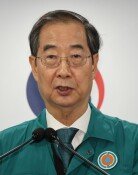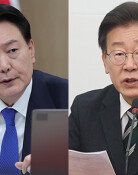Seoul must get first UNSC sanction on Kim Jong Un adopted
Seoul must get first UNSC sanction on Kim Jong Un adopted
Posted September. 08, 2017 07:49,
Updated September. 08, 2017 08:50
The United States has drafted a United Nations Security Council (UNSC) resolution calling for a freeze on overseas assets of five senior North Korean officials, including Kim Jong Un, a ban on them from traveling abroad, and a ban on supplying a range of oil products, including refined petroleum products and natural gasoline, to North Korea. The draft also calls for allowing the use of military forces when cracking down on North Korean vessels smuggling contraband cargo on international waters.
The UNSC’s has adopted a total of eight resolutions imposing sanctions on North Korea, from Pyongyang’s first nuclear test in 2006 and Resolution 2371 adopted early last month. Each resolution added strong measures, and Resolution 2371 put a complete ban on the North’s exports of minerals and fisheries products – Pyongyang’s main export items. However, the measures have failed to North Korea’s continued provocations. The latest U.S. draft can be seen as reflecting Washington’s strong commitment to imposing sanctions that Pyongyang would find unendurable in order to prevent the communist state from making further provocations.
For the first time, the draft includes Kim Jong Un, North Korea’s “supreme dignity,” into individuals to be sanctions. Although the move is an expression of Washington’s determination to completely isolate him from the international community by branding him as the head of a rogue state, it is nothing more than a symbolic move for the leader of a country that is closed off from the outside world. After all, they key lies in severing the lifeline of the Kim Jong Un regime by cutting off oil supplies to Pyongyang – a measure that had to be excluded from last month’s UNSC sanctions resolution because of opposition from China and Russia, both veto-wielding permanent members of the UNSC.
Beijing and Moscow are already saying no to the draft. Russian President Vladimir Putin explained in detail his country’s position against the proposal at a summit with South Korean President Moon Jae-in. U.S. President Donald Trump could not hear a clear answer from China during his telephone conversation with his Chinese counterpart Xi Jinping. Considering Washington’s warning that it would implement secondary boycott of all entities transacting with North Korea, it seems that Beijing and Moscow would find it difficult to stick with their opposition. In a seemingly related move, Trump said the Chinese leader “would like to do something (about North Korea.”
The initial U.S. intelligence assessment of the North’s sixth nuclear test indicates the underground explosion measured 140 kilotons, nearly three times stronger than Seoul’s estimation of 50 kilotons. Moreover, the nuclear bomb, if exploded over Seoul, could result in nearly 3 million casualties, according to the U.S. assessment. If the international community fails to make Kim Jong Un kneel down, it would become forever impossible to stop the North’s nuclear possession. Then, South Korea would have to live under a nuclear bomb that could fall on them any time.
President Moon agreed with Japanese Prime Minister Shinzo Abe on Thursday to do their best to convince China and Russia to accept the new UNSC sanctions. Seoul, as the first party to the North Korean nuclear issue, should go further to get a strong sanctions resolution adopted, rather than leaving it in the hands of the UNSC permanent members. Seoul should make all-out diplomatic efforts to persuade UNSC member states and win all the other UN member countries to put pressure on Beijing and Moscow.







